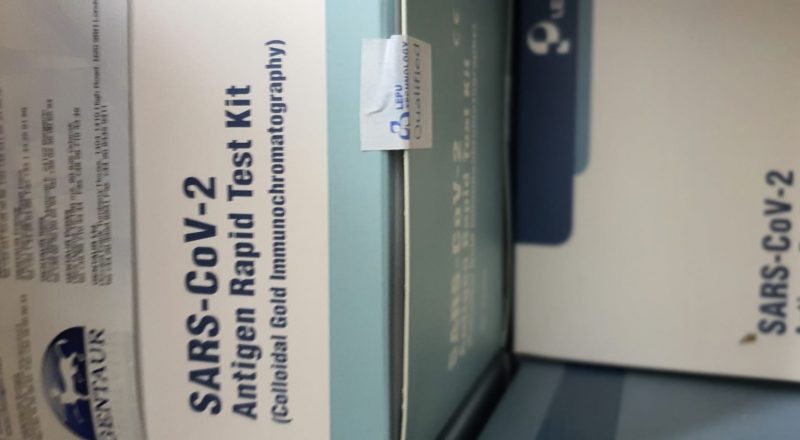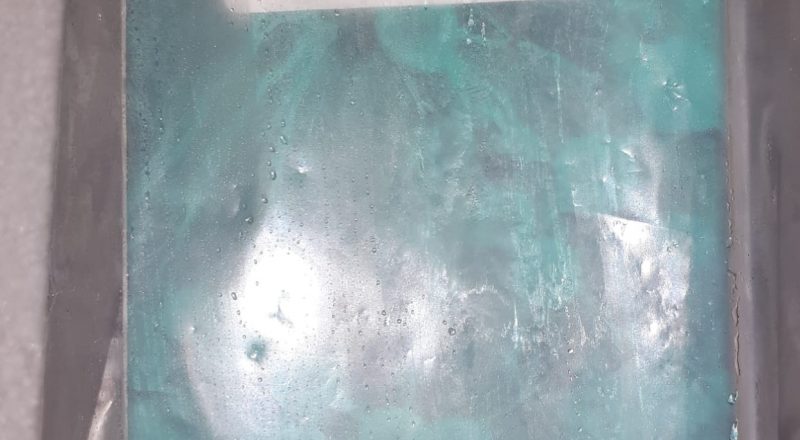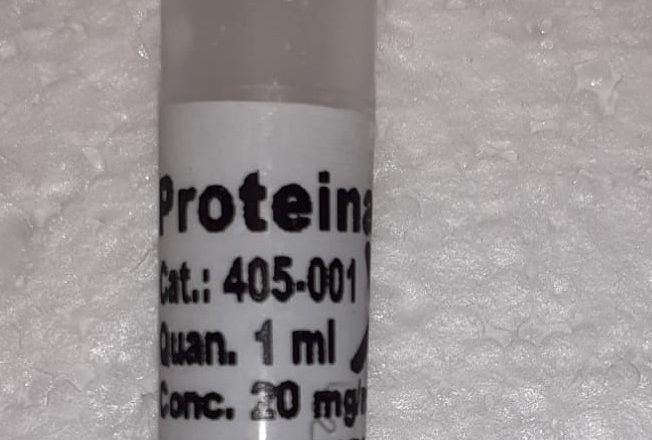
Stable Long-Term Culture of Human Distal Airway Stem Cells for Transplantation
Scalable nanolaminated SERS multiwell cell tradition assay
Magnetic nanoparticle loaded human adipose derived mesenchymal cells spheroids in levitated custom
- Magnetic nanoparticles (MNP) are intensely scrutinized for biomedical functions attributable to their great biocompatibility and adjustable magnetic space (MF) responsiveness. Three-dimensional spheroid custom of ADSC improves stem cell proliferation and differentiation, rising their potential for scientific functions.
- On this study we aimed to detect if MF levitated custom of ADSC loaded with proprietary MNP hold the properties of ADSC and improve their performances.
- Levitated ADSC-MNP formed aggregates with elevated amount and lowered amount compared with nonlevitated ones. ADSC-MNP from levitated spheroid displayed higher viability, proliferation and mobility compared with nonlevitated and 2D custom. Levitated and nonlevitated ADSC-MNP spheroids underwent three lineage differentiation, demonstrating preserved ADSC stemness.
- Quantitative osteogenesis confirmed associated values in MNP-loaded levitated and nonlevitated spheroids. Important will enhance in adipogenic conversion was seen for all 3D formulation. Chondrogenic conversion in levitated and nonlevitated spheroids produced comparable ratio glucosaminoglycan (GAG)/DNA. Elevated chondrogenesis may be seen for ADSC-MNP in every levitated and nonlevitated state of affairs. Taken collectively, ADSC-MNP levitated spheroids retain stemness and present superior cell viability and migratory capabilities.
- Furthermore, the technique persistently will enhance spheroid maneuverability, most likely facilitating large scale manufacturing and automation. Levitated spheroid custom of ADSC-MNP will likely be extra examined for quite a few utility in regenerative medicine and organ modeling.
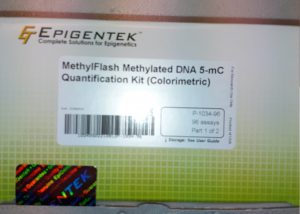
Show screen-Printed Glucose Sensors Modified with Cellulose Nanocrystals (CNCs) for CellCulture Monitoring
Glucose sensors are most likely useful devices for monitoring the glucose focus in cell custom medium. Proper right here, we present a model new, low-cost, and reproducible sensor based on a cellulose-based supplies, 2,2,6,6-tetramethylpiperidine-1-oxyl (TEMPO) oxidized-cellulose nanocrystals (CNCs).
This novel biocompatible and inert nanomaterial is employed as a polymeric matrix to immobilize and stabilize glucose oxidase throughout the fabrication of a reproducible, operationally safe, extraordinarily selective, cost-effective, screen-printed glucose sensor. The sensors have a linear fluctuate of 0.1-2 mM (R2 = 0.999) and a sensitivity of 5.7 ± 0.Three µA cm-2∙mM-1.
The limit of detection is 0.004 mM, and the limit of quantification is 0.015 mM. The sensor maintains 92.3 % of the preliminary current response after 30 consecutive measurements in a 1 mM commonplace glucose decision, and has a shelf lifetime of 1 month whereas sustaining extreme selectivity. We present the smart utility of the sensor by monitoring the glucose consumption of a fibroblast cell custom over the course of quite a lot of days.
Enchancment and characterization of megalocytivirus persistently-infected cellcultures for prime yield of virus
- Megalocytivirus an an infection is a severe danger in rock bream aquaculture in Korea. To provide a extraordinarily concentrated megalocytivirus, main cells, established cell line and persistently contaminated cell line have been used on this study.
- Megalocytivirus was inoculated in main fin cell cultures of purple sea bream (Pagrus fundamental), rock bream (Oplegnathus fasciatus), olive flounder (Paralichthys olivaceus) and black sea bream (Acanthopagrus schlegelii) and produced at associated concentrations of 1099 – 9.88 viral particles/mL in all cultures whereas produced 107.31 viral particles/mL in grunt fin (GF) cell line. Since solely purple sea bream fin custom was amenable to subculturing for higher than 100 events, it was established into Pagrus fundamental fin (PMF) cell line.
- A persistently contaminated PMF cell line (PI-PMF) was obtained by regular subculturing every 7 days as a batch custom system (PI-PMF-B) after infecting with megalocytivirus. Virus in supernatant of PI-PMF-B was maintained at extreme concentrations all by way of over 50 consecutive subcultures in a comparatively slim fluctuate from 1033 to 108.94 viral particles/mL with extreme diploma of CPE. For a additional atmosphere pleasant and useful manufacturing, a semi-batch custom system (PI-PMF-S) was developed throughout which custom media have been exchanged at intervals of three days with out subculturing for higher than 50 media exchanges.
- No matter low virus productiveness in a single cell (specific virus productiveness, SVP), complete cell amount was elevated in PI-PMF-S, allowing us to successfully obtain a lots higher focus of virus (1056 to 109.75 viral particles/mL) than in PMF-B. That’s the major study to report detailed new methods for regular and atmosphere pleasant manufacturing of extreme concentrations of megalocytivivrus with characterization of viral propagation in persistently contaminated cells.
 Soyabean Casein Digest Medium | |||
| LQ027CT-10X100ML | EWC Diagnostics | 1 unit | EUR 33.92 |
Description: Soyabean Casein Digest Medium | |||
 Soyabean Casein Digest Medium | |||
| LQ027CV-10X100ML | EWC Diagnostics | 1 unit | EUR 19.79 |
Description: Soyabean Casein Digest Medium | |||
 Soyabean Casein Digest Medium | |||
| LQ027D-5X500ML | EWC Diagnostics | 1 unit | EUR 54.94 |
Description: Soyabean Casein Digest Medium | |||
 Soyabean Casein Digest Medium | |||
| LQ027SXX-50X20ML | EWC Diagnostics | 1 unit | EUR 48.08 |
Description: Soyabean Casein Digest Medium | |||
 #Soyabean Casein Digest Medium | |||
| LQ027X-25X10ML | EWC Diagnostics | 1 unit | EUR 13.89 |
Description: #Soyabean Casein Digest Medium | |||
 #Soyabean Casein Digest Medium | |||
| LQ027X-50X10ML | EWC Diagnostics | 1 unit | EUR 22.26 |
Description: #Soyabean Casein Digest Medium | |||
 Soyabean Casein Digest Medium | |||
| LQ027XC-10X90ML | EWC Diagnostics | 1 unit | EUR 26.37 |
Description: Soyabean Casein Digest Medium | |||
 Soyabean Casein Digest Medium | |||
| LQ027XCK-10X90ML | EWC Diagnostics | 1 unit | EUR 30.71 |
Description: Soyabean Casein Digest Medium | |||
 #Soyabean Casein Digest Medium | |||
| LQ027XX-50X20ML | EWC Diagnostics | 1 unit | EUR 43.12 |
Description: #Soyabean Casein Digest Medium | |||
 Soyabean Casein Digest Medium | |||
| LQ027XXSC-25X20ML | EWC Diagnostics | 1 unit | EUR 29.06 |
Description: Soyabean Casein Digest Medium | |||
 Soyabean Casein Digest Medium | |||
| LQ027XXSC-50X20ML | EWC Diagnostics | 1 unit | EUR 52.23 |
Description: Soyabean Casein Digest Medium | |||
 Soyabean Casein Digest Medium | |||
| LQ027XXV-50X25ML | EWC Diagnostics | 1 unit | EUR 49.4 |
Description: Soyabean Casein Digest Medium | |||
 Soyabean Casein Digest Medium w/ | |||
| MF006F-50PT | EWC Diagnostics | 1 unit | EUR 79.92 |
Description: Soyabean Casein Digest Medium w/ | |||
 Soyabean Casein Digest Medium Base | |||
| M011F-500G | EWC Diagnostics | 1 unit | EUR 17.21 |
Description: Soyabean Casein Digest Medium Base | |||
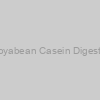 Sterile Soyabean Casein Digest Medium | |||
| LQ027-10X100ML | EWC Diagnostics | 1 unit | EUR 24.33 |
Description: Sterile Soyabean Casein Digest Medium | |||
 Sterile Soyabean Casein Digest Medium | |||
| LQ027A-10X100ML | EWC Diagnostics | 1 unit | EUR 24.09 |
Description: Sterile Soyabean Casein Digest Medium | |||
 Sterile Soyabean Casein Digest Medium | |||
| LQ027IX-100X9ML | EWC Diagnostics | 1 unit | EUR 41.93 |
Description: Sterile Soyabean Casein Digest Medium | |||
 Sterile Soyabean Casein Digest Medium | |||
| LQ027IX-20X9ML | EWC Diagnostics | 1 unit | EUR 15.61 |
Description: Sterile Soyabean Casein Digest Medium | |||
 Sterile Soyabean Casein Digest Medium | |||
| LQ027K-10X100ML | EWC Diagnostics | 1 unit | EUR 33.54 |
Description: Sterile Soyabean Casein Digest Medium | |||
 Soyabean Casein Digest Medium (without | |||
| MF006-50PT | EWC Diagnostics | 1 unit | EUR 41.98 |
Description: Soyabean Casein Digest Medium (without | |||
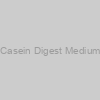 Soyabean Casein Digest Medium (Economy | |||
| MF006E-50PC | EWC Diagnostics | 1 unit | EUR 22.11 |
Description: Soyabean Casein Digest Medium (Economy | |||
 Soyabean Casein Digest Medium, Sterile | |||
| M011G-100G | EWC Diagnostics | 1 unit | EUR 9.99 |
Description: Soyabean Casein Digest Medium, Sterile | |||
 Soyabean Casein Digest Medium, Sterile | |||
| M011G-10KG | EWC Diagnostics | 1 unit | EUR 361.39 |
Description: Soyabean Casein Digest Medium, Sterile | |||
 Soyabean Casein Digest Medium, Sterile | |||
| M011G-2.5KG | EWC Diagnostics | 1 unit | EUR 103.42 |
Description: Soyabean Casein Digest Medium, Sterile | |||
 Soyabean Casein Digest Medium, Sterile | |||
| M011G-500G | EWC Diagnostics | 1 unit | EUR 20.7 |
Description: Soyabean Casein Digest Medium, Sterile | |||
 Soyabean Casein Digest Medium, Sterile | |||
| M011G-5KG | EWC Diagnostics | 1 unit | EUR 182.35 |
Description: Soyabean Casein Digest Medium, Sterile | |||
 Soyabean Casein Digest Medium, Sterile, | |||
| GMH011G-500G | EWC Diagnostics | 1 unit | EUR 24.46 |
Description: Soyabean Casein Digest Medium, Sterile, | |||
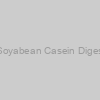 HiEncap Soyabean Casein Digest Medium | |||
| EC011D-10NO | EWC Diagnostics | 1 unit | EUR 20.7 |
Description: HiEncap Soyabean Casein Digest Medium | |||
 Soyabean Casein Digest Medium, Sterile | |||
| VM011G-3X500G | EWC Diagnostics | 1 unit | EUR 74.28 |
Description: Soyabean Casein Digest Medium, Sterile | |||
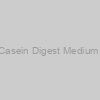 Soyabean Casein Digest Medium ?(Tryptone | |||
| GM011-500G | EWC Diagnostics | 1 unit | EUR 19.78 |
Description: Soyabean Casein Digest Medium ?(Tryptone | |||
 Soyabean Casein Digest Medium w/ 0.5% | |||
| M1529-500G | EWC Diagnostics | 1 unit | EUR 60.68 |
Description: Soyabean Casein Digest Medium w/ 0.5% | |||
 Soyabean Casein Digest Medium w/ BCP | |||
| M1655-500G | EWC Diagnostics | 1 unit | EUR 18.4 |
Description: Soyabean Casein Digest Medium w/ BCP | |||
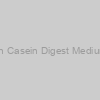 Soyabean Casein Digest Medium w/BCP | |||
| LQ148-10X100ML | EWC Diagnostics | 1 unit | EUR 29.52 |
Description: Soyabean Casein Digest Medium w/BCP | |||
 Soyabean Casein Digest Medium w/ BCP | |||
| LQ148CK-10X100ML | EWC Diagnostics | 1 unit | EUR 36.63 |
Description: Soyabean Casein Digest Medium w/ BCP | |||
 Soyabean Casein Digest Medium w/ BCP | |||
| LQ148XX-50X20ML | EWC Diagnostics | 1 unit | EUR 35.96 |
Description: Soyabean Casein Digest Medium w/ BCP | |||
 w/) Soyabean Casein Digest Medium (SCDM) w/ | |||
| LQ197C-10X100ML | EWC Diagnostics | 1 unit | EUR 42.3 |
Description: Soyabean Casein Digest Medium (SCDM) w/ | |||
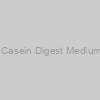 Soyabean Casein Digest Medium w/ LTHTh | |||
| M1973-100G | EWC Diagnostics | 1 unit | EUR 24.49 |
Description: Soyabean Casein Digest Medium w/ LTHTh | |||
 Soyabean Casein Digest Medium w/ LTHTh | |||
| M1973-500G | EWC Diagnostics | 1 unit | EUR 96.35 |
Description: Soyabean Casein Digest Medium w/ LTHTh | |||
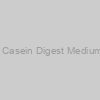 Soyabean Casein Digest Medium (in screw | |||
| LQ027DS-5X500ML | EWC Diagnostics | 1 unit | EUR 65.95 |
Description: Soyabean Casein Digest Medium (in screw | |||
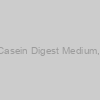 Soyabean Casein Digest Medium, Gamma Irr | |||
| LQ027BVLGT-1X5L | EWC Diagnostics | 1 unit | EUR 160.76 |
Description: Soyabean Casein Digest Medium, Gamma Irr | |||
 Soyabean Casein Digest Medium (Wide mout | |||
| LQ027QK-10X49ML | EWC Diagnostics | 1 unit | EUR 28.21 |
Description: Soyabean Casein Digest Medium (Wide mout | |||
 Soyabean Casein Digest Medium (Wide mout | |||
| LQ027UK-10X99ML | EWC Diagnostics | 1 unit | EUR 39.89 |
Description: Soyabean Casein Digest Medium (Wide mout | |||
 Soyabean Casein Digest Medium (Wide mout | |||
| LQ027VK-5X490ML | EWC Diagnostics | 1 unit | EUR 67.67 |
Description: Soyabean Casein Digest Medium (Wide mout | |||
 Soyabean Casein Digest Medium (Wide mout | |||
| LQ027XMK-2X990ML | EWC Diagnostics | 1 unit | EUR 61.94 |
Description: Soyabean Casein Digest Medium (Wide mout | |||
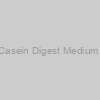 Soyabean Casein Digest Medium w/ Mannito | |||
| M1856G-500G | EWC Diagnostics | 1 unit | EUR 17.43 |
Description: Soyabean Casein Digest Medium w/ Mannito | |||
 Soyabean Casein Digest Medium w/ Mannito | |||
| M1856G-5KG | EWC Diagnostics | 1 unit | EUR 157.75 |
Description: Soyabean Casein Digest Medium w/ Mannito | |||
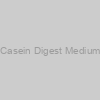 Soyabean Casein Digest Medium w/ Neutral | |||
| M1982-500G | EWC Diagnostics | 1 unit | EUR 53.89 |
Description: Soyabean Casein Digest Medium w/ Neutral | |||
 Sterile Soyabean Casein Digest Medium (D | |||
| LQ027DW-10X100ML | EWC Diagnostics | 1 unit | EUR 35.29 |
Description: Sterile Soyabean Casein Digest Medium (D | |||
 Sterile Soyabean Casein Digest Medium w/ | |||
| LQ117-25X10ML | EWC Diagnostics | 1 unit | EUR 13.89 |
Description: Sterile Soyabean Casein Digest Medium w/ | |||
 Sterile Soyabean Casein Digest Medium w/ | |||
| LQ117-50X10ML | EWC Diagnostics | 1 unit | EUR 22.26 |
Description: Sterile Soyabean Casein Digest Medium w/ | |||
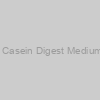 Soyabean Casein Digest Medium, Sterile P | |||
| M011GR-500G | EWC Diagnostics | 1 unit | EUR 21.77 |
Description: Soyabean Casein Digest Medium, Sterile P | |||
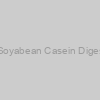 HiEncap™ Soyabean Casein Digest Medium ? | |||
| EC011CCL-25NO | EWC Diagnostics | 1 unit | EUR 35.48 |
Description: HiEncap™ Soyabean Casein Digest Medium ? | |||
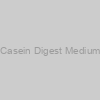 Soyabean Casein Digest Medium w/Lecithin | |||
| M1838-500G | EWC Diagnostics | 1 unit | EUR 79.56 |
Description: Soyabean Casein Digest Medium w/Lecithin | |||
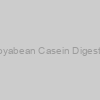 Modified Soyabean Casein Digest Medium w | |||
| LQ201-25X4ML | EWC Diagnostics | 1 unit | EUR 14.41 |
Description: Modified Soyabean Casein Digest Medium w | |||
 Modified Soyabean Casein Digest Medium w | |||
| LQ201-50X4ML | EWC Diagnostics | 1 unit | EUR 27.25 |
Description: Modified Soyabean Casein Digest Medium w | |||
 Modified Soyabean Casein Digest Medium w | |||
| LQ202-25X4ML | EWC Diagnostics | 1 unit | EUR 14.41 |
Description: Modified Soyabean Casein Digest Medium w | |||
 Modified Soyabean Casein Digest Medium w | |||
| LQ202-50X4ML | EWC Diagnostics | 1 unit | EUR 27.25 |
Description: Modified Soyabean Casein Digest Medium w | |||
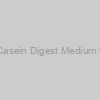 Soyabean Casein Digest Medium w/ 1% Soya | |||
| LQ197D-5X500ML | EWC Diagnostics | 1 unit | EUR 91.17 |
Description: Soyabean Casein Digest Medium w/ 1% Soya | |||
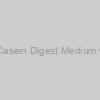 Soyabean Casein Digest Medium w/ 3% Soya | |||
| LQ238XC-10X90ML | EWC Diagnostics | 1 unit | EUR 53.05 |
Description: Soyabean Casein Digest Medium w/ 3% Soya | |||
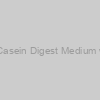 Soyabean Casein Digest Medium w/ 5% Soya | |||
| LQ239XC-10X90ML | EWC Diagnostics | 1 unit | EUR 59.27 |
Description: Soyabean Casein Digest Medium w/ 5% Soya | |||
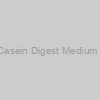 Soyabean Casein Digest Medium w/ 0.5% So | |||
| M2115-500G | EWC Diagnostics | 1 unit | EUR 69.67 |
Description: Soyabean Casein Digest Medium w/ 0.5% So | |||
 Soyabean Casein Digest Medium w/ 0.5% So | |||
| LQ193C-10X100ML | EWC Diagnostics | 1 unit | EUR 41.64 |
Description: Soyabean Casein Digest Medium w/ 0.5% So | |||
 Soyabean Casein Digest Medium w/ 0.5% So | |||
| LQ193CC-5X200ML | EWC Diagnostics | 1 unit | EUR 47.74 |
Description: Soyabean Casein Digest Medium w/ 0.5% So | |||
 Soyabean Casein Digest Medium w/ 0.5% So | |||
| LQ193CCC-5X300ML | EWC Diagnostics | 1 unit | EUR 55.63 |
Description: Soyabean Casein Digest Medium w/ 0.5% So | |||
 Soyabean Casein Digest Medium w/ 0.5% So | |||
| LQ193CK-10X100ML | EWC Diagnostics | 1 unit | EUR 47.8 |
Description: Soyabean Casein Digest Medium w/ 0.5% So | |||
 Soyabean Casein Digest Medium w/ 0.5% So | |||
| LQ193CV-5X100ML | EWC Diagnostics | 1 unit | EUR 57.23 |
Description: Soyabean Casein Digest Medium w/ 0.5% So | |||
 Soyabean Casein Digest Medium w/ 0.5% So | |||
| LQ194C-10X100ML | EWC Diagnostics | 1 unit | EUR 40.71 |
Description: Soyabean Casein Digest Medium w/ 0.5% So | |||
 Soyabean Casein Digest Medium w/ 0.5% So | |||
| LQ194CCL-5X250ML | EWC Diagnostics | 1 unit | EUR 52.57 |
Description: Soyabean Casein Digest Medium w/ 0.5% So | |||
 Soyabean Casein Digest Medium w/ 0.5% So | |||
| LQ194XC-10X90ML | EWC Diagnostics | 1 unit | EUR 40.55 |
Description: Soyabean Casein Digest Medium w/ 0.5% So | |||
 Soyabean Casein Digest Medium w/ 0.5% So | |||
| LQ257IX-50X9ML | EWC Diagnostics | 1 unit | EUR 26.7 |
Description: Soyabean Casein Digest Medium w/ 0.5% So | |||
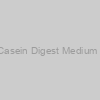 Soyabean Casein Digest Medium w/ 0.5% Po | |||
| LQ285C-10X100ML | EWC Diagnostics | 1 unit | EUR 46.67 |
Description: Soyabean Casein Digest Medium w/ 0.5% Po | |||
 Soyabean Casein Digest Medium w/ 0.5% So | |||
| LQ518CK-10X100ML | EWC Diagnostics | 1 unit | EUR 44.21 |
Description: Soyabean Casein Digest Medium w/ 0.5% So | |||
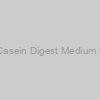 Soyabean Casein Digest Medium w/0.5% Soy | |||
| LQ257CK-10X100ML | EWC Diagnostics | 1 unit | EUR 45.22 |
Description: Soyabean Casein Digest Medium w/0.5% Soy | |||
 Soyabean Casein Digest Medium w/0.5% Soy | |||
| LQ257XCK-5X90ML | EWC Diagnostics | 1 unit | EUR 41.33 |
Description: Soyabean Casein Digest Medium w/0.5% Soy | |||
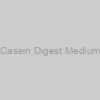 Soyabean Casein Digest Medium w/ BCP, S | |||
| M1655G-10KG | EWC Diagnostics | 1 unit | EUR 491.9 |
Description: Soyabean Casein Digest Medium w/ BCP, S | |||

